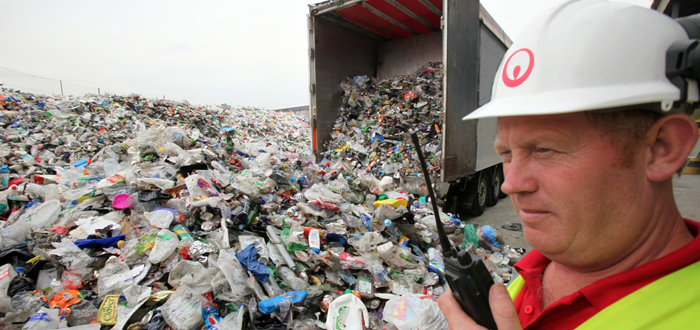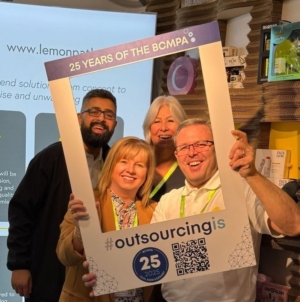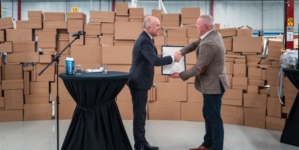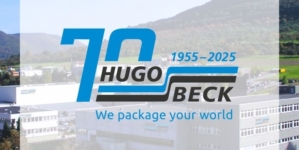-
Nutrivend selects Forterro’s Orderwise to support online expansion and streamline operations - April 11, 2025
-
ARROWXL LAUNCHES AMBITIOUS ZERO WASTE ROADMAP - April 8, 2025
-
THE BCMPA’S NEW CAMPAIGN DRIVES OUTSOURCING SUCCESS IN Q1 - April 7, 2025
-
BLACKOUT TECHNOLOGIES TARGETS TELEMATICS-INTEGRATED MOBILE DEVICE BLOCKING TO COMBAT SMARTPHONE DISTRACTION - April 1, 2025
-
Sparck Technologies awarded Royal designation - March 27, 2025
-
OpenADR Alliance announces first OpenADR 3.0 certified products with EVoke Systems, E.ON Energy and Universal Devices - March 25, 2025
-
Growing fulfilment and contract packer appoints new Managing Director - March 25, 2025
-
When is it time to invest in a WMS? Understanding the key trigger points - March 25, 2025
-
eCapital helps Vantage Recruitment on its journey to financial success - March 24, 2025
-
Hugo Beck Celebrates 70 Years of Packaging Innovation with Open House Events - March 20, 2025
Time To Redesign Plastics – Most Consumers Want At Least 50% Recycled Content In Their Bottles.
New research by Veolia, the UK’s leading resource management company and market leader in plastic recycling, reveals that the vast majority of people – 93%, think plastic bottles should contain recycled content and most are also willing to pay an average of 2.5p more for it. Survey results published in Plan For Plastics, a new report launched today by Veolia and plastics experts, RECOUP, describe an indisputable gap between what recycled content the public expect to be in plastic products and the reality.
• 93% of consumers think plastic bottles should contain recycled content
• 55% of people think the majority of a bottle should be recycled content
Plastic bottles and packaging generally uses less than 15% recycled content – a significant distance from meeting consumer expectations.
In Plan For Plastics, Veolia outlines three ways the UK can turn plastic into an environmental success story;
• Simplify recycling to remove confusion
• Standardise packaging so a product is recyclable by design
• Increase the use of recycled content in the manufacturing of new products
The public have given a stamp of approval to the recycling industry, being prepared to pay an extra 2.5p for bottles containing recycled content – while 87% think plastic bottles should be recycled in the UK. This is the green light for greener manufacturing.
Veolia already recycles over 10,000 tonnes of plastic bottles in the UK every year and is calling on manufacturers and Government to remove the bottlenecks to greater recycling rates.
Richard Kirkman, Chief Technology and Innovation Officer, Veolia UK & Ireland says:
“Plastic packaging can be complex but increasing recycling rates can be simple. Veolia is in a unique position, holding a bird’s eye view over the end-to-end plastic recycling process, and in this report with industry experts RECOUP, we recommend three clear ways for the UK to become a champion of plastic recycling – both environmentally and economically – setting the standard for the next decade.
“The British public have told us they expect plastic bottles to be made of recycled content. We see 50% recycled content for plastic bottles and 30% for plastic packaging as realistic ambitions for every manufacturer to aim for within the next 10 years. When more packaging is both recyclable and made from recycled material, it will be the shift needed for recycled plastic to become mainstream.
“Veolia is planning to invest £1 billion in recycling and recovery infrastructure in the UK over the next five years. It is up to designers, manufacturers and Government to ensure supply matches our stake; so more plastic is collected and sorted to a higher quality standard. We owe it to future generations to make circular and sustainable living this country’s priority.”
Stuart Foster, Chief Executive Officer, RECOUP says:
“There is more focus on plastic and sustainability than ever before, and that needs to be matched with action and progress.
“With circular economy and extended producer responsibility currently under debate, this is the ideal time to acknowledge the key issues and challenge current thinking.”
For more information visit www.veolia.co.uk .
































